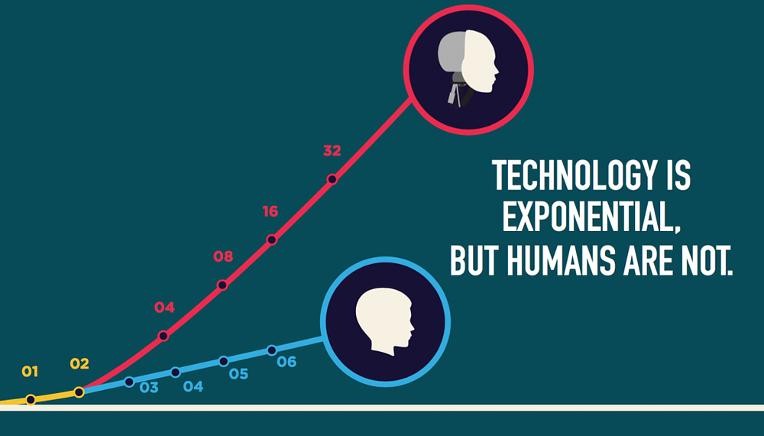Just as the BC and AD years denote a significant event in human history, we are currently living in a time that can be referred to as ‘before the singularity’ (BS) and ‘after the singularity’ (AS). The concept of the singularity refers to a future moment when artificial intelligence (AI) will surpass human intelligence, resulting in a transformative impact on society. Many people do not realise the effects of exponential development in technology.

This futuristic milestone has been likened to religious prophecies, such as the Second Coming in Christianity, Islam, and the Baha’i faith. In this article, we will explore the similarities between the singularity and religion, focusing on themes of unity, transcendence, and the dissolution of individualism.
Singularity: A Technological Revolution
The singularity, a term popularized by futurist Ray Kurzweil, describes a point in time when AI will surpass human intelligence, leading to rapid technological advancements that are beyond our current comprehension. This event is expected to revolutionize various aspects of human life, such as healthcare, communication, and transportation. Many futurists and technologists argue that the singularity will bring about a new era of humanity, transcending our current limitations and ushering in a world of abundance and prosperity.
The Second Coming: A Religious Perspective
The Second Coming is a belief shared by Christianity, Islam, and the Baha’i faith, which posits that Jesus will return to Earth after his ascension to heaven about two thousand years ago. Followers of these religions anticipate this event to bring about spiritual transformation, unity, and the establishment of a divine kingdom on Earth.
Parallels Between Singularity and Religion
- Unity and Oneness: Both the singularity and religious prophecies, like the Second Coming, envision a world where humanity becomes interconnected and unified. The singularity proposes a future where humans merge with technology, achieving a state of collective intelligence and consciousness. Similarly, religious beliefs emphasize the unity of all people under a divine kingdom, regardless of race, nationality, or creed.
- Transcendence: The singularity and religious prophecies share the idea of transcending our current limitations. In the case of the singularity, this involves transcending the physical and mental boundaries imposed by our biological nature, while religious teachings focus on spiritual transcendence, leading to a higher state of consciousness and connection with the divine.
- Dissolution of Individualism: Both the singularity and religious beliefs suggest a future where individualism fades away, replaced by a collective consciousness. The singularity posits that humans will be connected through a global network of AI, creating a hive-mind that transcends individual thoughts and experiences. In religious teachings, the emphasis is on unity and selflessness, with individuals becoming part of a greater whole.
Although the singularity and religious prophecies like the Second Coming have different origins and manifestations, they share common themes of unity, transcendence, and the dissolution of individualism. As humanity continues to advance technologically, it is essential to engage in thoughtful dialogue about the potential implications of a post-singularity world, as well as the ethical and moral considerations that arise from such a transformative event. By examining these parallels, we can foster a deeper understanding of our shared hopes and aspirations for the future of humanity.
What does this mean?
It means we need to focus on transcendence and spiritual learning and opening up.
